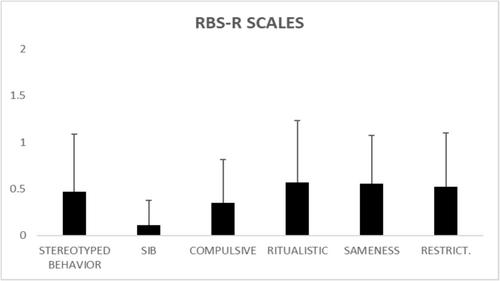Characterising repetitive behaviours in children and adolescents with Down syndrome
Abstract
Background
Individuals with intellectual disability, including people with Down syndrome (DS), often exhibit restricted and repetitive behaviours (RRBs). However, RRBs have not been deeply characterised in children and adolescents with DS.
Method
The study encompassed a cohort of 151 participants aged 4 to 18 years with DS. RRBs were assessed utilising the Repetitive Behaviour Scale-Revised. Additionally, data pertaining to cognitive and adaptive functioning, linguistic abilities, sleep patterns and emotional/behavioural issues were gathered.
Results
Self-injurious behaviours were reported less frequently whereas parents most commonly endorsed items related to behaviours associated with the need for sameness and ritualistic behaviours. We observed very few gender differences, whereas some age-related differences emerged, with adolescents exhibiting higher scores in items related with higher-level RRBs. The analysis of the association between RRBs and clinical features revealed that RRBs were associated with parent-reported sleep difficulties, as well as with internalising and externalising problems. We also observed a negative correlation with IQ whereas associations with adaptive skills emerged mainly for lower-level RRBs, such as motor stereotypies. Finally, RRBs were negatively associated with linguistic abilities, both expressive and receptive.
Conclusions
RRBs in children and adolescents with DS are of significant clinical interest due to their associations with various clinical dimensions. Therefore, psychological and neuropsychiatric assessment should include an accurate evaluation of RRBs for young people with DS.


 求助内容:
求助内容: 应助结果提醒方式:
应助结果提醒方式:


